Master Google Ads Automated Bidding
- Chase McGowan

- Oct 16, 2025
- 16 min read
Google Ads automated bidding gets sold as a “set it and forget it” button, but let’s be real—the reality is a lot more complicated. It’s a powerful tool, no doubt, using machine learning to tweak your bids in real-time. But its success lives or dies by the strategic direction you give it. Without an expert at the helm, it’s just a really fast way to burn through your ad budget. This is where you see the massive gap between a dedicated consultant and a bloated, overpriced agency.
Why Automated Bidding Is Not a Magic Button
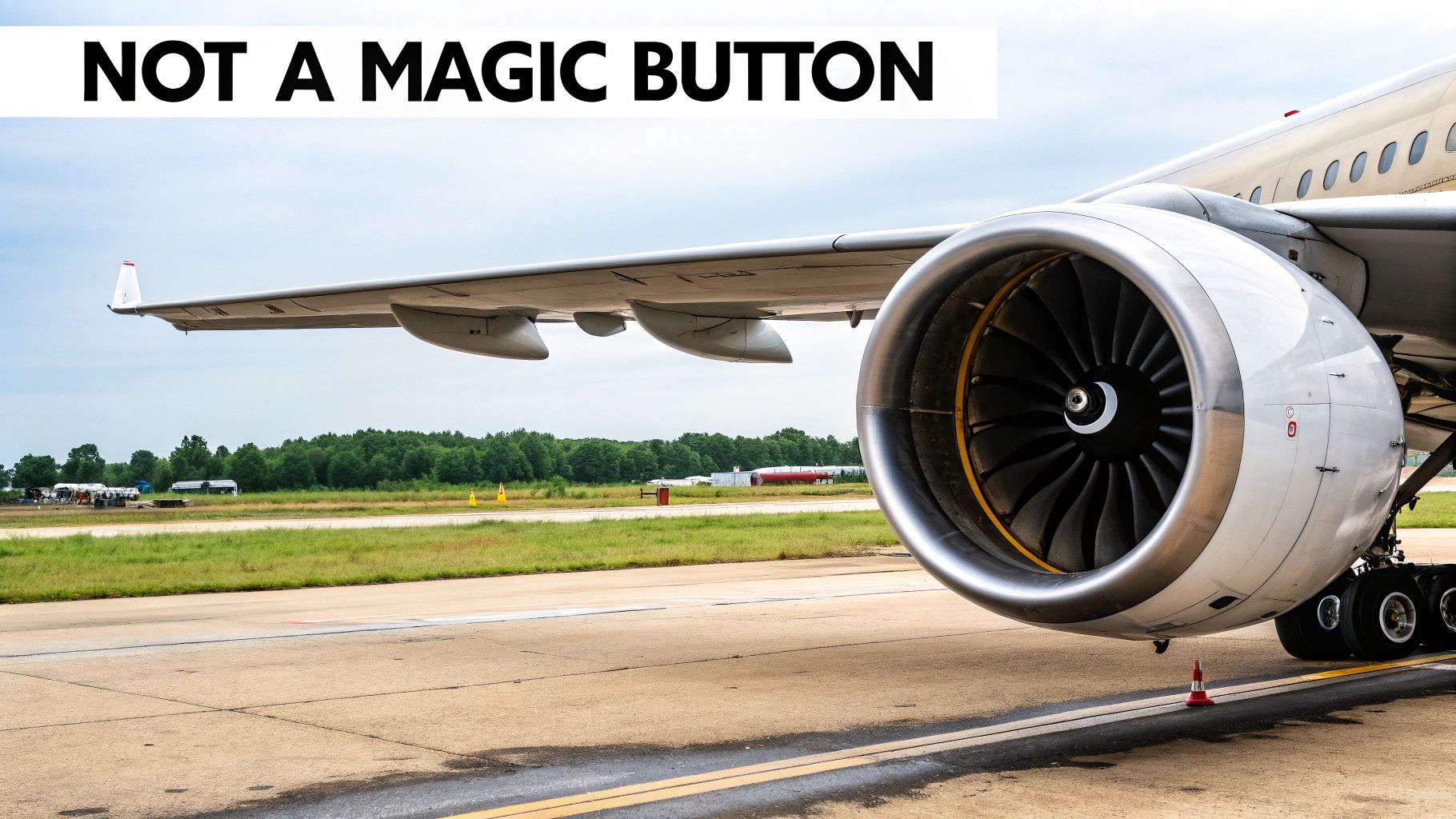
Many big agencies love to pitch automated bidding as an autopilot system. That’s a costly myth. A much better way to think about it is as a sophisticated jet engine. It has incredible power, but you still need a skilled pilot to set the destination, monitor the gauges, and navigate through turbulence.
This is where you see the massive gap between a dedicated consultant and a bloated, overpriced agency. An agency juggling dozens of clients slaps on a one-size-fits-all template, flips on automation, and hopes for the best. That hands-off approach almost always leads to wasted spend because the machine is flying completely blind. As an individual consultant, my entire model is built around providing that expert pilot—the strategic oversight you simply won't get from an agency assembly line.
The "Set It and Forget It" Lie
Here's the fundamental flaw with the "set it and forget it" mindset: automation is only as smart as the data you feed it. The algorithm has no clue about your profit margins, inventory levels, or that upcoming seasonal promotion. It needs flawless data and crystal-clear instructions to do its job.
An expert consultant provides the human intelligence that makes the machine work for you, not against you. This is what that looks like in practice:
Strategic Goal Setting: We go way beyond just "more conversions." We define sharp objectives, like hitting a specific Return on Ad Spend (ROAS) that’s tied directly to your unique profit goals.
Impeccable Data Integrity: This is non-negotiable. Your conversion tracking has to be perfect. If the data is garbage, the algorithm will make terrible, expensive decisions based on it. If you suspect yours is off, you can learn how to [fix your Google Ads conversion tracking](https://www.cometogether.media/single-post/fix-your-google-ads-conversion-tracking).
Constant Monitoring and Adjustment: This means actively watching performance, spotting weird anomalies, and making smart, strategic tweaks. That’s a level of hands-on attention an overloaded agency account manager simply can’t give.
The greatest risk in Google Ads isn't the algorithm; it's the assumption that the algorithm doesn't need a guide. True success comes from pairing machine efficiency with expert human strategy.
At the end of the day, a dedicated expert turns Google Ads automated bidding from an unpredictable money pit into a reliable profit engine. This guide will walk you through how that strategic human oversight—the very thing missing in the high-volume agency model—is the key to unlocking its massive potential.
Understanding How the Bidding Algorithm Thinks
To really get a handle on Google Ads automated bidding, you need to peek behind the curtain. Think of it like having a tireless AI financial analyst working for you 24/7. Before every single ad auction, this analyst instantly processes billions of data points to place the most profitable bid possible.
This happens in a flash. The system analyzes everything from the user's device and location to the time of day and their past search behavior. Its only job is to hit your campaign goals. Here's the catch: its success depends entirely on the quality of the information you feed it. If you give it messy, inaccurate data or vague objectives, it's going to make poor, costly decisions.
Garbage In, Garbage Out: The Agency Trap
This is where the difference between a dedicated consultant and a bloated agency becomes painfully obvious. Big agencies are often juggling dozens of clients per account manager. They just don't have the time for the meticulous setup the algorithm needs to thrive. So, they apply a template, flip the automation switch, and move on to the next fire drill, leaving the algorithm to guess based on flawed or incomplete data.
This "garbage in, garbage out" cycle is a huge source of wasted ad spend. As an expert consultant, I act as your master strategist. I ensure the algorithm gets only clean data and crystal-clear instructions. This level of precision is what prevents the expensive mistakes that plague overloaded agency accounts and turns automation from a liability into a strategic asset.
This diagram breaks down the three pillars of information the bidding algorithm needs to do its job right.
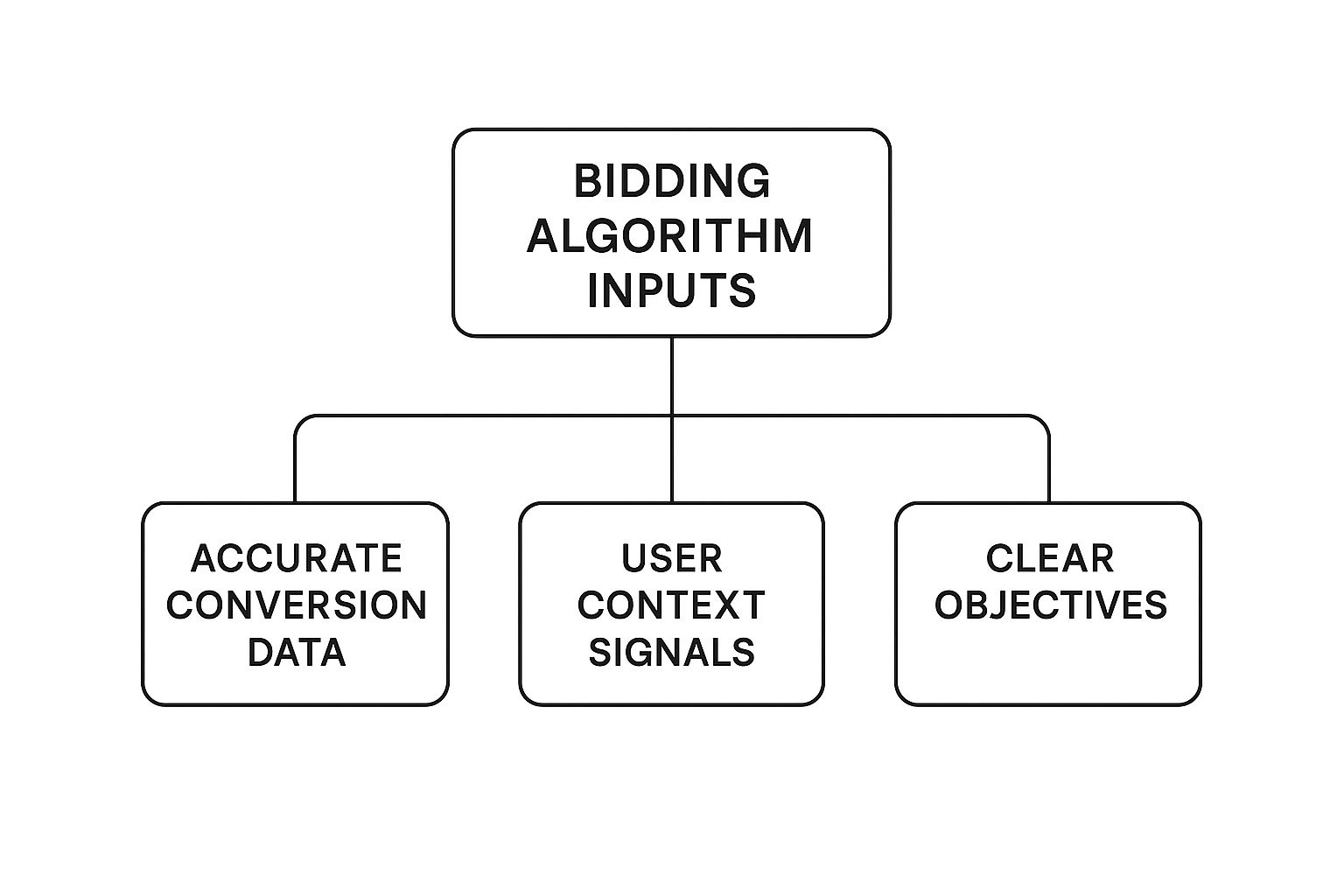
As you can see, successful automation isn't about pushing one button. It's the result of combining flawless data, rich user context, and well-defined business objectives.
The Brain Behind the Bid
Google's system, which we all know as Smart Bidding, uses machine learning to adjust bids on the fly based on all those real-time signals. As of 2025, Google offers several powerful Smart Bidding strategies, including Target CPA (Cost Per Acquisition), Target ROAS (Return On Ad Spend), Maximize Conversions, and Maximize Conversion Value. Each is built for a different business outcome, and knowing which one to use is half the battle.
The algorithm's power comes from its ability to process auction-time signals that a human never could. Here are just a few of the data points it's looking at:
Location Intent: It knows the difference between someone physically in a location versus someone just interested in it.
Ad Characteristics: It analyzes the performance history of different ad formats and creative assets.
User Attributes: It considers demographics, language settings, browser type, and more.
The bidding algorithm is a powerful calculator, not a mind reader. It can only solve the equation you give it. My job as a consultant is to ensure that equation is perfectly crafted to deliver profit, not just clicks.
This complex system processes more data than any team of people ever could, but it has zero business intuition. It doesn't understand your profit margins or know which leads are actually valuable. Recent insights from the Google Algorithm Data Leak only confirm the incredible complexity behind these automated systems. That’s why the strategic oversight of a specialist isn't just a nice-to-have—it’s essential for turning raw machine power into predictable business growth.
Choosing The Right Automated Bidding Strategy

Picking a Google Ads automated bidding strategy isn't just a technical click in a dropdown menu. It's a core business decision. Each strategy is a specific tool for a specific job, and using the wrong one is like trying to hammer in a screw—it’s clumsy, frustrating, and just won’t work.
This is exactly where a dedicated consultant’s approach blows the doors off the assembly-line model you get from a big, impersonal agency. An agency might see "Maximize Conversions" as a default setting to slap on every client account. I know it’s a tool for aggressive market capture—perfect for a new product launch where getting volume is everything, even if it means a higher cost per acquisition at first.
The whole game is about tying your bidding strategy directly to your business goals, not some generic industry "best practice."
Aligning Bidding Strategy With Business Goals
The fastest way to burn through your ad budget is a disconnect between what your business needs and what your bidding strategy is doing. An overloaded agency account manager simply doesn't have the time—or the deep business insight—to bridge that gap. They manage campaigns; I manage for profit.
Here’s how I translate your business needs into a precise bidding strategy:
For Aggressive Growth: If the mission is to flood the pipeline with leads or sales to grab market share, Maximize Conversions is a powerful place to start. It tells Google's algorithm to chase down as many conversions as it can within your daily budget. Simple.
For Stable Profitability: If you're an established business and every dollar needs to work for a living, Target ROAS (Return On Ad Spend) is the way to go. This isn't a guess—you need to know your numbers inside and out, specifically the return required to stay profitable.
For Controlled Lead Costs: When you know exactly what a new lead is worth, Target CPA (Cost Per Acquisition) gives you that cost control. You tell Google the price you’re willing to pay for a conversion, and the algorithm works to hit that average.
This is the strategic thinking where my personalized approach pays for itself. I don't just pick a strategy; I build it around your profit margins, your cash flow, and where you want the business to be in a year. Bloated agencies just can't get that granular. To go deeper on the options, check out this guide on the top 9 Google Ads bidding strategies you need to know for 2025.
Choosing a bidding strategy without knowing your business’s financial model isn’t marketing; it’s gambling. I make sure your bidding is a calculated investment designed to drive profit, not just clicks.
The Pitfalls of a One-Size-Fits-All Agency Approach
Large agencies are built on efficiency, which means standardized templates and cookie-cutter processes. They’ll run dozens of accounts on the exact same bidding strategy because it’s easy to manage. But your business is not the same as their other clients, and that generic approach leaves a ton of money on the table.
For instance, an agency might leave an e-commerce store on "Maximize Conversions" and call it a day. Sure, it generates sales, but it makes no distinction between a $20 sale and a $500 sale. The algorithm sees them as equal wins, potentially overspending to acquire low-value customers.
As a specialist, I’d spot that flaw in a second. I’d immediately shift the campaign to Maximize Conversion Value, a much smarter strategy. This tells the algorithm to hunt for users who are likely to make high-value purchases, directly boosting your revenue and profit from the same ad spend. It’s a small tweak that requires a deep dive into your product margins—a level of detail that gets lost in a high-volume agency.
Automated Bidding Strategies When to Use Them
This table cuts through the noise, showing you which strategy to use and when—a far cry from the generic playbook most agencies follow.
Bidding Strategy | Primary Goal | Best For Businesses That... | My Specialist Note |
|---|---|---|---|
Maximize Conversions | Getting the highest number of conversions within a set budget. | ...are focused on lead generation or aggressive growth and have a flexible cost-per-lead. | Agencies love this as a default. It can drive up CPCs without caring about conversion quality. |
Target CPA | Generating conversions at a specific average cost per acquisition. | ...have a clear, fixed budget for acquiring each customer and need predictable costs. | You need at least 15-30 conversions in the last 30 days for this to work. Set an unrealistic target, and you'll starve the campaign of traffic. |
Target ROAS | Achieving a specific return for every dollar spent on ads. | ...are e-commerce stores or businesses with varying product/service values. | This is the go-to for profitability. It demands perfect conversion tracking with accurate revenue values passed back to Google. |
Maximize Clicks | Driving as much traffic to your website as possible. | ...are focused on brand awareness or building an email list, not direct sales. | I almost never use this for performance campaigns. It optimizes for traffic, not actions that make you money. |
At the end of the day, the right automated bidding strategy isn't something you just find. It's a conclusion you reach after a sharp, thorough analysis of your business. That strategic, custom-fit analysis is the entire reason to work with a dedicated expert instead of a faceless, overpriced agency.
The Human Oversight Most Agencies Overlook

This is the one thing that separates so-so results from real, sustainable growth. Automation without deep, strategic oversight is just a faster way to burn through your budget. Think of Google Ads automated bidding as a powerful engine. It's got plenty of horsepower, but it’s an engine without a driver. The real magic isn’t in just turning the key; it’s in the constant, nuanced thinking that steers the automation toward your actual business goals.
And this is where the typical agency model completely falls apart.
Agencies are built for client volume, not deep specialization. They’ll assign you an account manager who’s likely juggling 20-30 other clients, each with their own set of goals and fires to put out. That manager simply doesn't have the time or mental space to go beyond a surface-level, templated approach. They set a generic bidding strategy, check for obvious problems, and then it's on to the next client.
As an independent consultant, I operate on a totally different model. My focus isn’t on stacking up clients; it’s on driving client results. This allows for the deep, hands-on strategic work that automation absolutely requires to be profitable—a level of focus that is structurally impossible within a bloated agency.
Garbage Data In, Garbage Results Out
An algorithm’s performance is only as good as the data you feed it. If your conversion tracking is a mess, the machine will make expensive decisions based on flawed information. This is the first, and most common, failure point I see in agency-managed accounts. They often inherit or quickly set up basic tracking without ever truly verifying its accuracy.
As a specialist, I treat conversion tracking like the foundation of a house—it has to be perfect before you build anything on top of it.
Meticulous Setup and Auditing: This means getting into the weeds of your website and Google Tag Manager to ensure every single valuable action is tracked flawlessly. We're talking not just form fills but also phone calls, key page views, and e-commerce transactions with real revenue values attached.
Assigning Dynamic Values: For an e-commerce store, just tracking a "sale" isn't enough. You have to pass the specific transaction value back to Google Ads. This is what allows strategies like Target ROAS to know the difference between a $20 purchase and a $500 purchase.
Qualifying Your Leads: For lead gen, not all conversions are created equal. A "demo request" is worlds more valuable than a "newsletter signup." I work with you to assign different values to these actions, effectively teaching the algorithm which leads to chase.
This kind of data hygiene is completely non-negotiable for success with Google Ads automated bidding. It's also the first corner an overworked agency account manager is forced to cut.
Strategy That Connects Bids to Your Bottom Line
Once the data is clean, the next step is telling the algorithm what to do with it. This isn't just a technical setting; it's a core business decision. An agency might set a Target CPA of $50 because it "seems like a reasonable number." But I ask a much deeper question: what CPA can your business actually afford based on your customer lifetime value and profit margins?
Setting a bid target without a deep understanding of your business’s financial model is just guessing. True ROI comes from aligning the algorithm’s goals with your actual profit goals, a connection that faceless agencies consistently miss.
This strategic alignment is the fundamental difference. I don't just manage your ads; I learn your business model. We'll establish bidding targets that are reverse-engineered directly from your revenue goals.
For example, we won't just pick a Target ROAS of 300% out of thin air. We'll calculate the precise ROAS needed to cover your cost of goods sold, overhead, and ad spend while still delivering the target profit margin you need to grow. This transforms your ad spend from a simple expense into a predictable, scalable investment. An account manager with 30 other clients on their plate simply does not have the time for this critical strategic work.
Creative Optimization: The Missing Human Touch
Automation handles the bids, sure, but it doesn't write your ads or design your landing pages. This is where the human element of creativity, empathy, and analysis becomes completely irreplaceable. Performance data tells a story about what your customers are responding to, and an expert is trained to read that story and act on it.
This is a continuous loop, not a one-time task:
Analyzing Search Query Reports: Even with automation, you have to watch what search terms are actually triggering your ads. I actively scour these reports to find and exclude irrelevant queries that waste money—a task that is almost always neglected in "set-and-forget" agency accounts.
Continuous Ad Copy Testing: The algorithm can rotate your existing ads, but it can't write new ones based on emerging customer pain points or a competitor's new messaging. I'm constantly testing new headlines and descriptions informed by real performance data to improve click-through rates and Quality Scores.
Informing Landing Page Improvements: If a campaign has a great CTR but a poor conversion rate, the problem is almost always the landing page. As an expert, I analyze the data to provide clear, data-backed recommendations to improve the on-site experience—a crucial step that falls way outside the scope of most agencies' services.
This feedback loop—where machine data informs human strategy and creativity—is what drives sustainable improvement. An agency might update your ads once a quarter. I see it as a weekly, essential part of making the entire system work smarter. It's this dedicated, specialist oversight that turns the powerful tool of Google Ads automated bidding into a true competitive advantage.
How to Navigate the Critical Learning Phase
When you switch on a new Google Ads automated bidding strategy, the first few weeks can feel like a rollercoaster. Your cost per acquisition might be fantastic one day and through the roof the next. This is precisely where inexperienced managers and overloaded agencies fail. They panic, start pulling levers, and end up resetting the entire process.
This period of chaos isn't a sign that something's broken; it's a feature. It's called the learning phase, and you have to think of it as the algorithm going to school. It's crunching mountains of data, testing bids, and figuring out what actually works for your account. It needs this time to build a solid predictive model.
This is where my steady hand as a consultant becomes mission-critical. Agencies, often under pressure to deliver quick, surface-level results, get spooked during this phase. They jump in too soon, tweak settings without enough data, and essentially sabotage the algorithm's education. This constant meddling means the system never builds the confidence it needs to perform.
Patience Prevents Self-Sabotage
The learning phase is a test of discipline, plain and simple. The algorithm is learning, and my job is to give it the time and clean data it needs to graduate. Making reactive, emotional decisions here is the fastest way to burn your budget and get stuck in a cycle of permanent underperformance.
As an experienced consultant, I know what's coming. I expect the swings. I understand that this initial turbulence is a necessary evil. I know exactly when a small adjustment might be needed and—more importantly—when the best move is to do absolutely nothing.
The most valuable action an expert takes during the learning phase is often inaction. It's the disciplined patience to let the data accumulate that sets the stage for long-term, profitable automation.
This calculated patience is the hallmark of expert management. It’s a world away from the typical agency model, where account managers feel pressured to "do something" to justify their retainer, even when that "something" does more harm than good.
How Long Does the Learning Phase Last?
So, how long do you have to hold your nerve? While it varies by account, a general consensus has emerged in the field. To get out of the learning phase and let the algorithm stabilize, you need to let new bid strategies run for 4 to 8 weeks before making any major changes. Real-world results show that the best outcomes come from letting the AI learn, avoiding frequent strategy swaps, and focusing on ads and landing pages in the meantime. You can find out more about this modern approach by getting up-to-date with automated bidding in Google Ads.
During this critical window, I’m not frantically tweaking bids. Instead, I focus on strengthening the inputs the algorithm relies on:
Verifying Conversion Data: Making sure the data fueling the machine is 100% accurate.
Improving Ad Creative: Testing new copy and visuals to boost click-through and conversion rates.
Optimizing Landing Pages: Ensuring the user journey from click to conversion is completely seamless.
Getting through this phase successfully requires a partnership built on trust and expertise—not the reactive, one-size-fits-all approach you see from most bloated agencies.
Partnering with an Expert, Not an Assembly Line
At the end of the day, Google Ads automated bidding is an incredibly powerful tool. But it's an amplifier, not a magic wand. It magnifies the strategy you feed it—good or bad.
True, sustainable growth comes from pairing raw machine power with sharp human oversight. As we've covered, hitting exceptional ROI requires the dedicated, strategic thinking of a specialist, not the divided attention you get from a big, overpriced agency.
The difference really comes down to the business model. Bloated agencies are built on volume, treating accounts like interchangeable parts on a conveyor belt. A true consultant, on the other hand, operates as your partner. Your strategy gets built from the ground up, tied directly to your unique profit margins and business goals, not pulled from some generic playbook.
Beyond Generic Solutions
This kind of personalized oversight is what ensures your investment in automation actually pays off. It’s about having a specialist who doesn't just understand the algorithms, but also understands your business inside and out.
This is especially critical on visually-driven platforms, highlighting the value of [partnering with a specialized YouTube Ads agency](https://www.moonb.io/blog/youtube-ads-agency) to ensure your campaigns are expertly managed far beyond just the automated settings. When you're ready to get past generic advice and want a partner who is genuinely committed to your success, it’s time to choose a specialist.
The goal isn’t just to automate bidding; it's to make that automation profitable. That profitability is unlocked by an expert who can translate your business objectives into a language the machine can execute flawlessly.
If you’re tired of the agency runaround and want to see what a dedicated partnership can actually accomplish, it's time to [hire a Google Ads expert and cut the waste](https://www.cometogether.media/single-post/hire-google-ads-expert-cut-the-waste-partner-with-a-specialist). It’s the only way to ensure your powerful ad tools are finally guided by an equally powerful strategy.
Frequently Asked Questions
When you start digging into Google Ads automated bidding, a lot of questions come up. Here are some straight-up, practical answers to cut through the noise and get to the heart of what works.
Can I Use Automated Bidding Without Conversion Tracking?
Technically, you can, but it’s like flying a plane blindfolded. It's a guaranteed way to crash your budget.
Sure, strategies like "Maximize Clicks" will run without conversion data, but they’re built to get you traffic, not profit. The strategies that actually move the needle—like Target CPA and Target ROAS—are completely dependent on knowing which clicks turn into customers. Without that data, the algorithm has no idea what a good click even looks like.
This is one of the most common and costly mistakes I see, especially from overloaded agencies that rush the setup. An expert ensures your tracking is rock-solid before a single dollar is spent on a conversion-focused bidding strategy.
Why Is My Automated Bidding Campaign Spending So Much?
This usually happens for a couple of reasons, and both point back to a lack of real strategy. First, bidding strategies like "Maximize Conversions" are designed to spend your entire daily budget, period. It will bid aggressively to get a conversion, even if that means your cost per click goes through the roof. It has no concept of profitability, only volume.
Second, your targets might be totally unrealistic. An agency might set a Target CPA that's way too high or a Target ROAS that’s too low, basically giving the algorithm a blank check. A dedicated consultant works backward from your actual profit margins to set smart, data-driven targets that protect your budget while focusing on profitable growth.
How Long Does It Take for Automated Bidding to Work?
You have to be patient. Every automated bidding strategy goes through a "learning phase," which can last anywhere from a few days to a couple of weeks. Performance can be all over the place during this time while the algorithm gathers data.
The single biggest mistake you can make is panicking and tweaking things during the learning phase. Every change resets the algorithm's progress, trapping you in a never-ending cycle of bad performance.
An overloaded agency account manager, under pressure to look busy, will often meddle way too soon. An experienced consultant knows to let the machine learn, understanding that some short-term volatility is the price of admission for long-term, stable results.
Agency vs. Consultant: What's the Real Difference for Bidding?
It boils down to specialization versus scale. A big, bloated agency is built on templates and processes designed to manage dozens of clients per person. They slap a one-size-fits-all bidding strategy on your account because it's efficient for them, not because it’s effective for you.
An independent consultant’s model is built on partnership. We do a deep dive into your actual business metrics—profit margins, customer lifetime value, the whole picture—to build a bidding strategy that’s tailored to your bottom line. We have the focus to provide the meticulous setup and strategic oversight that automation needs to be truly profitable. It's the difference between a generic prescription and a specialist's diagnosis.
Ready to stop gambling with generic agency strategies? At Come Together Media LLC, we combine the power of Google's automation with the critical, expert oversight needed to drive real profit. Let's build a strategy that works for your unique business goals. Get your free consultation and see the difference a specialist makes.




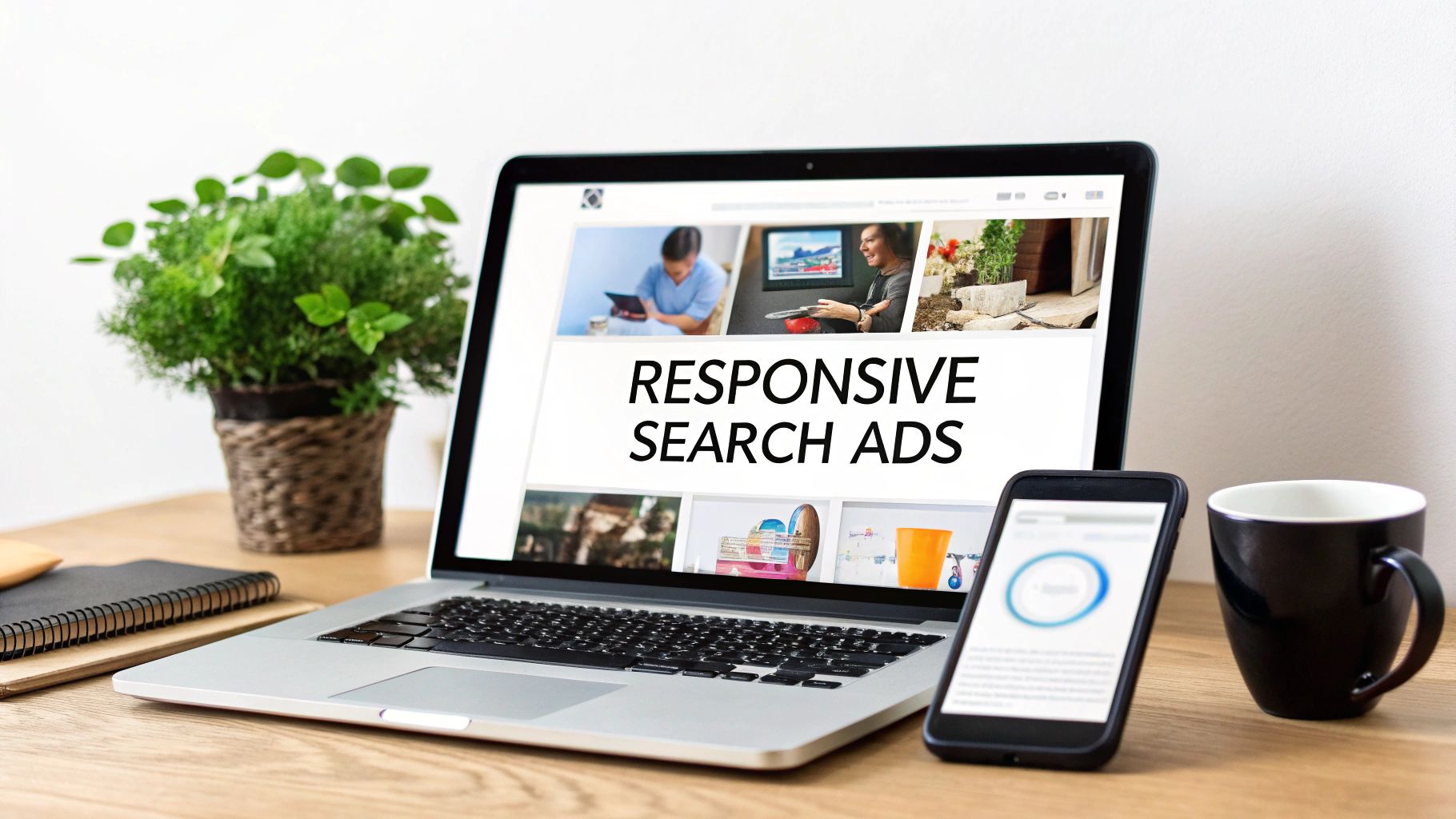
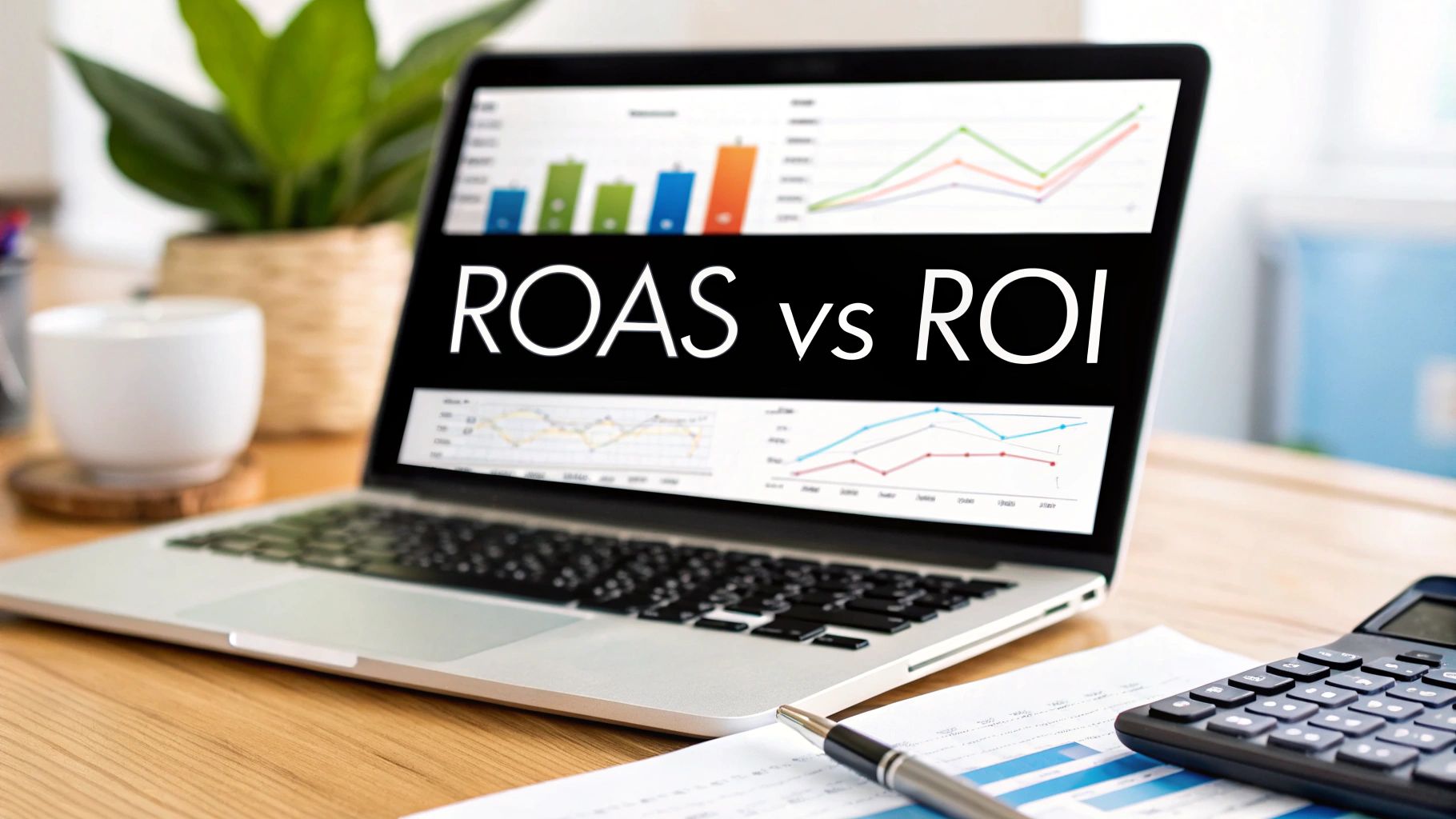
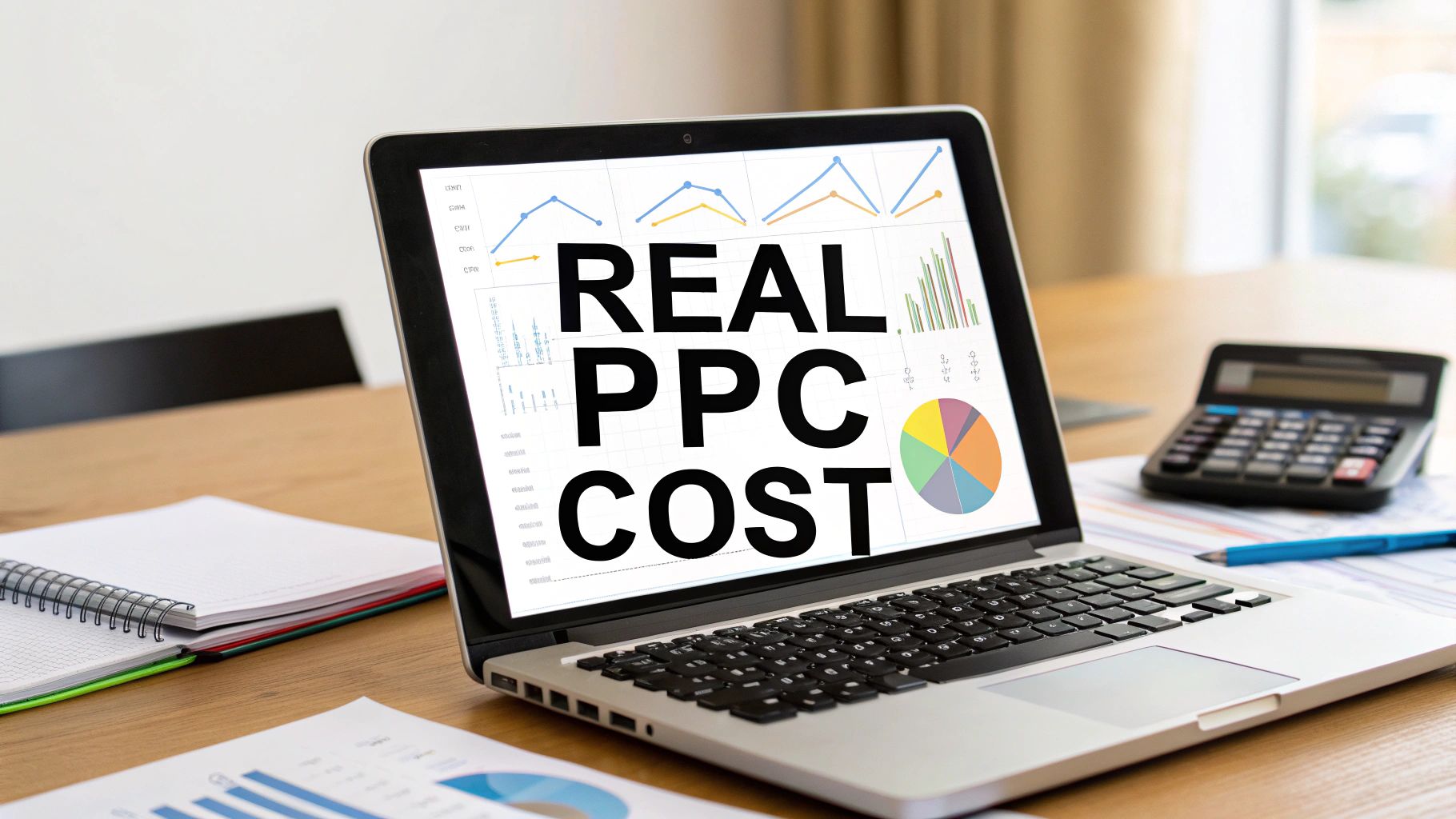
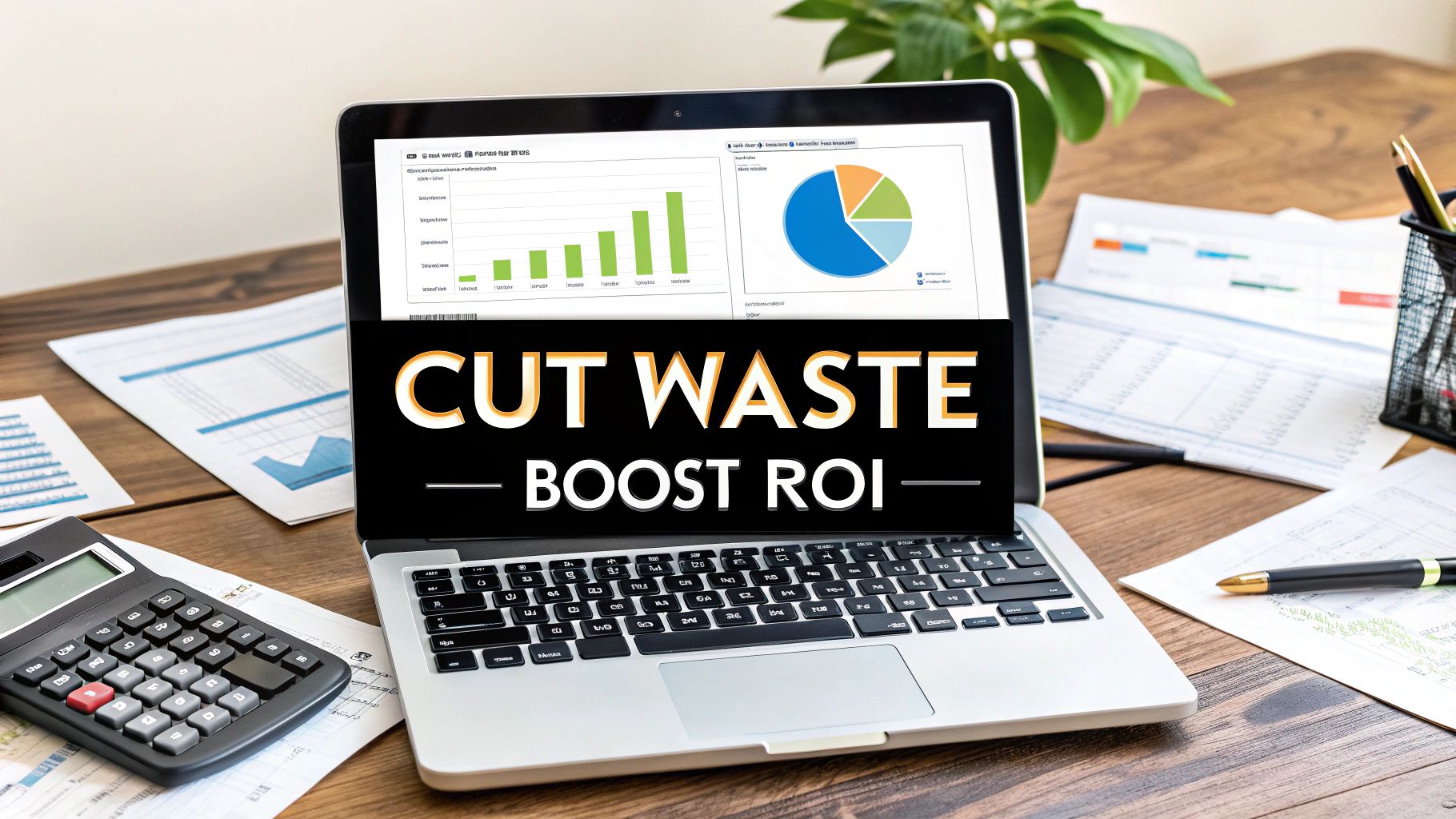
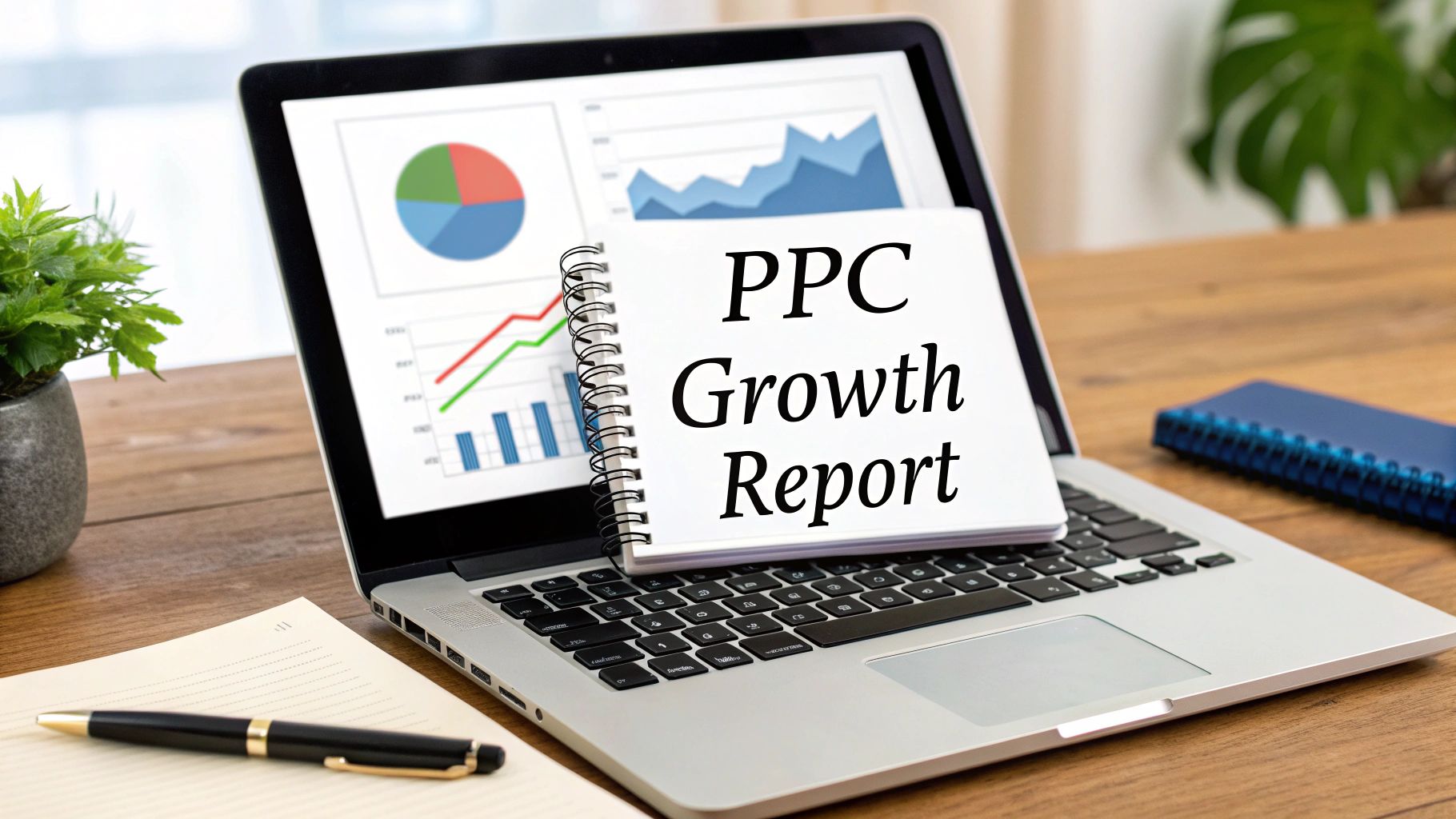
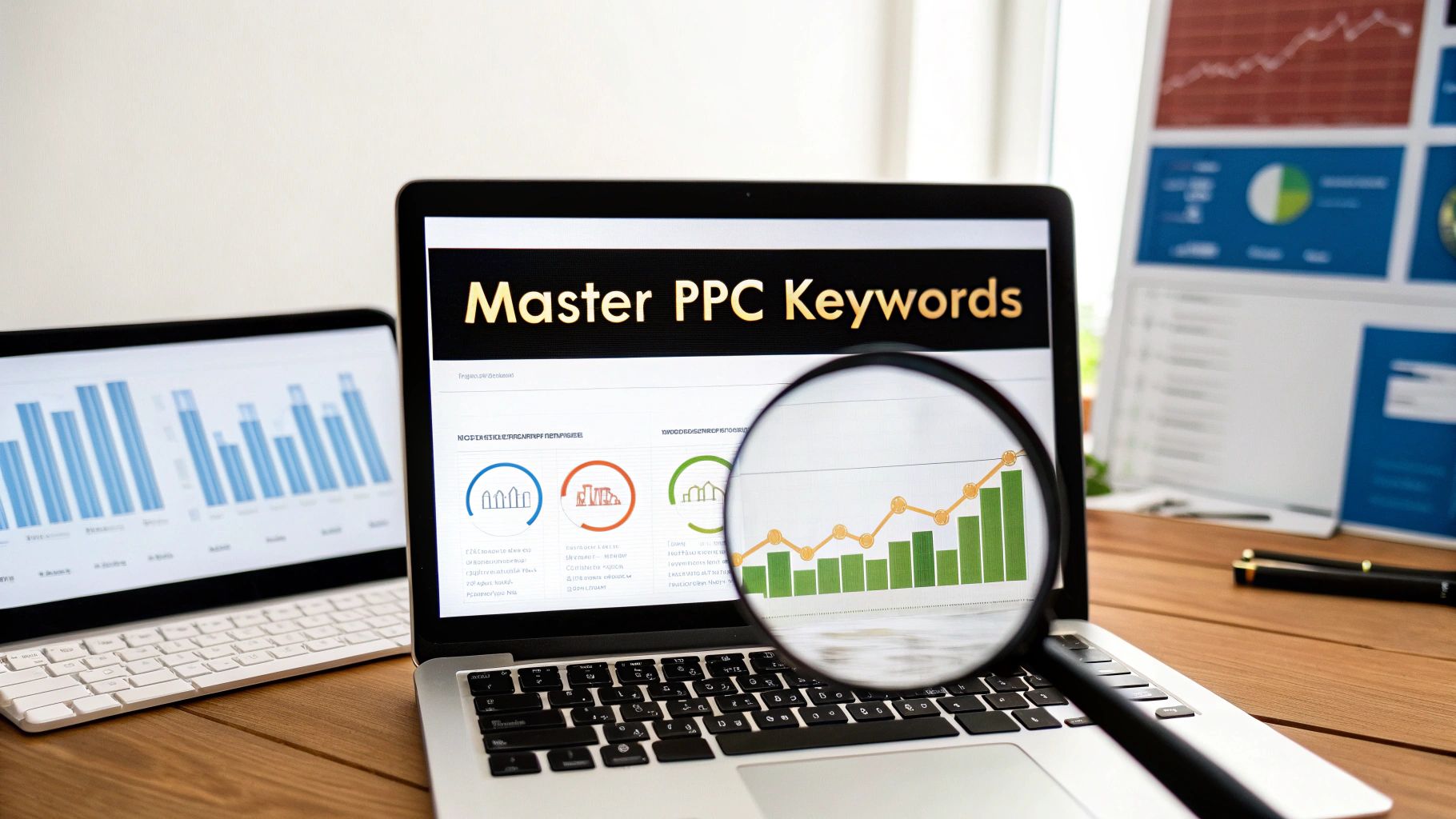
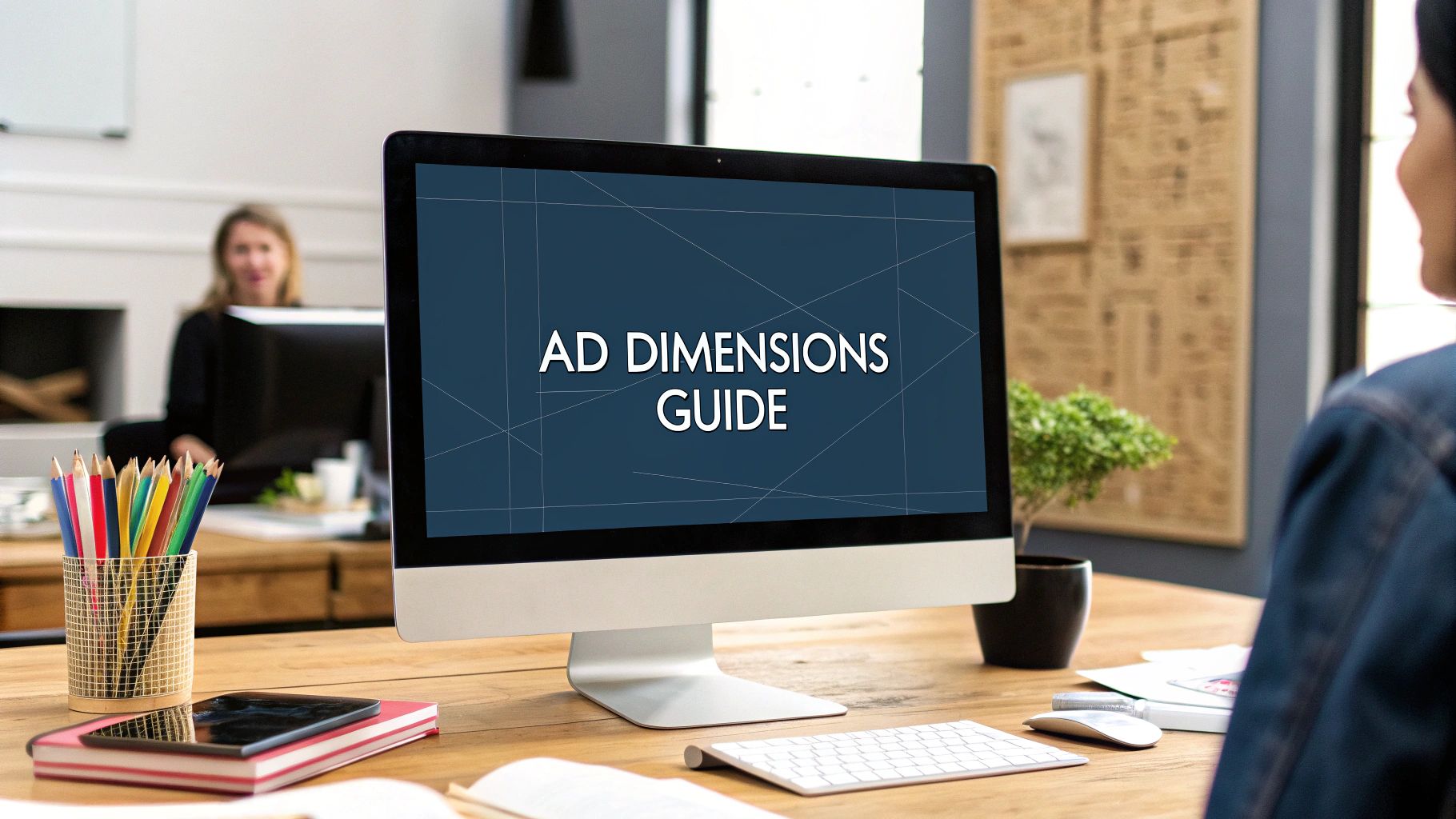
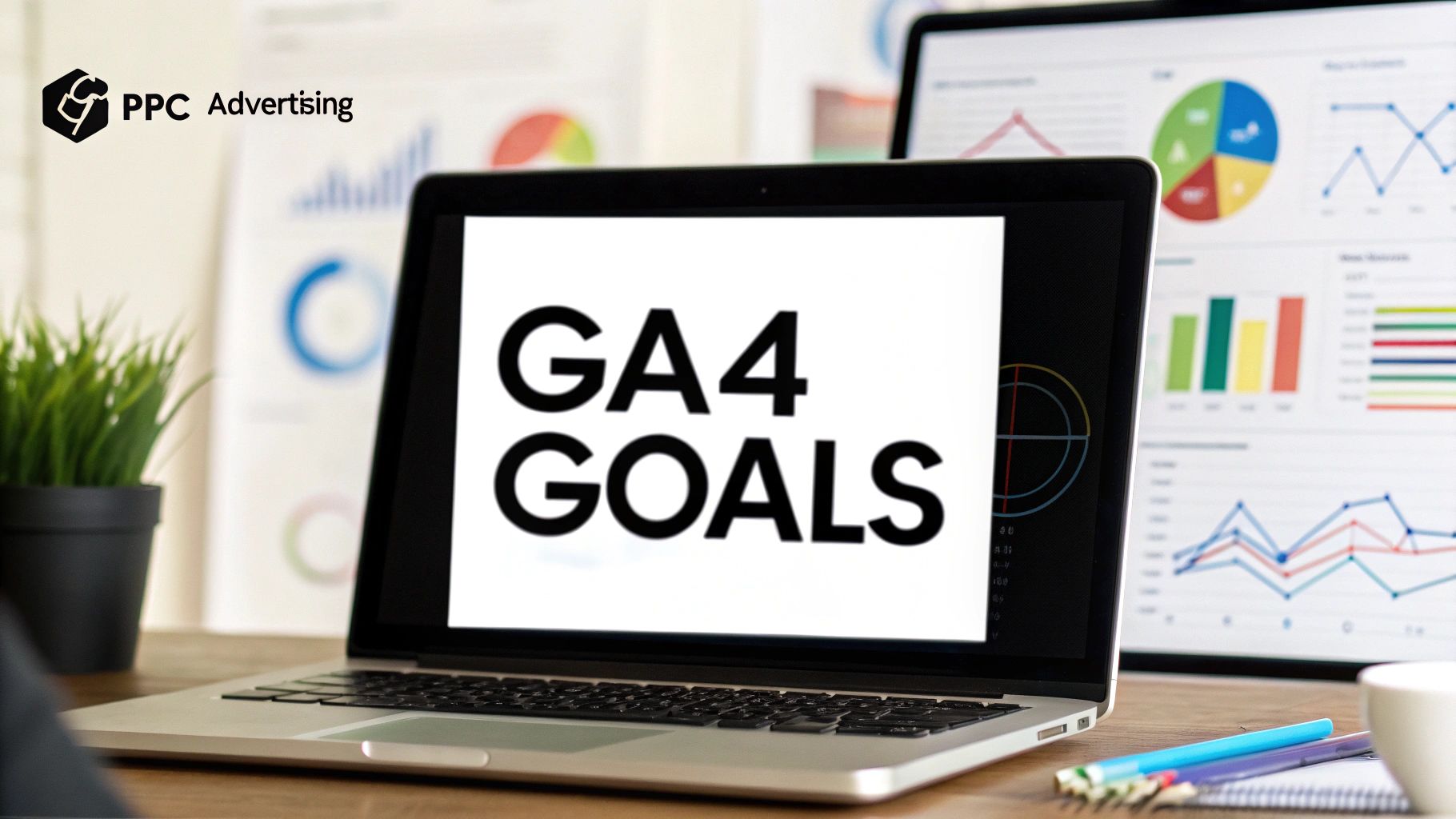
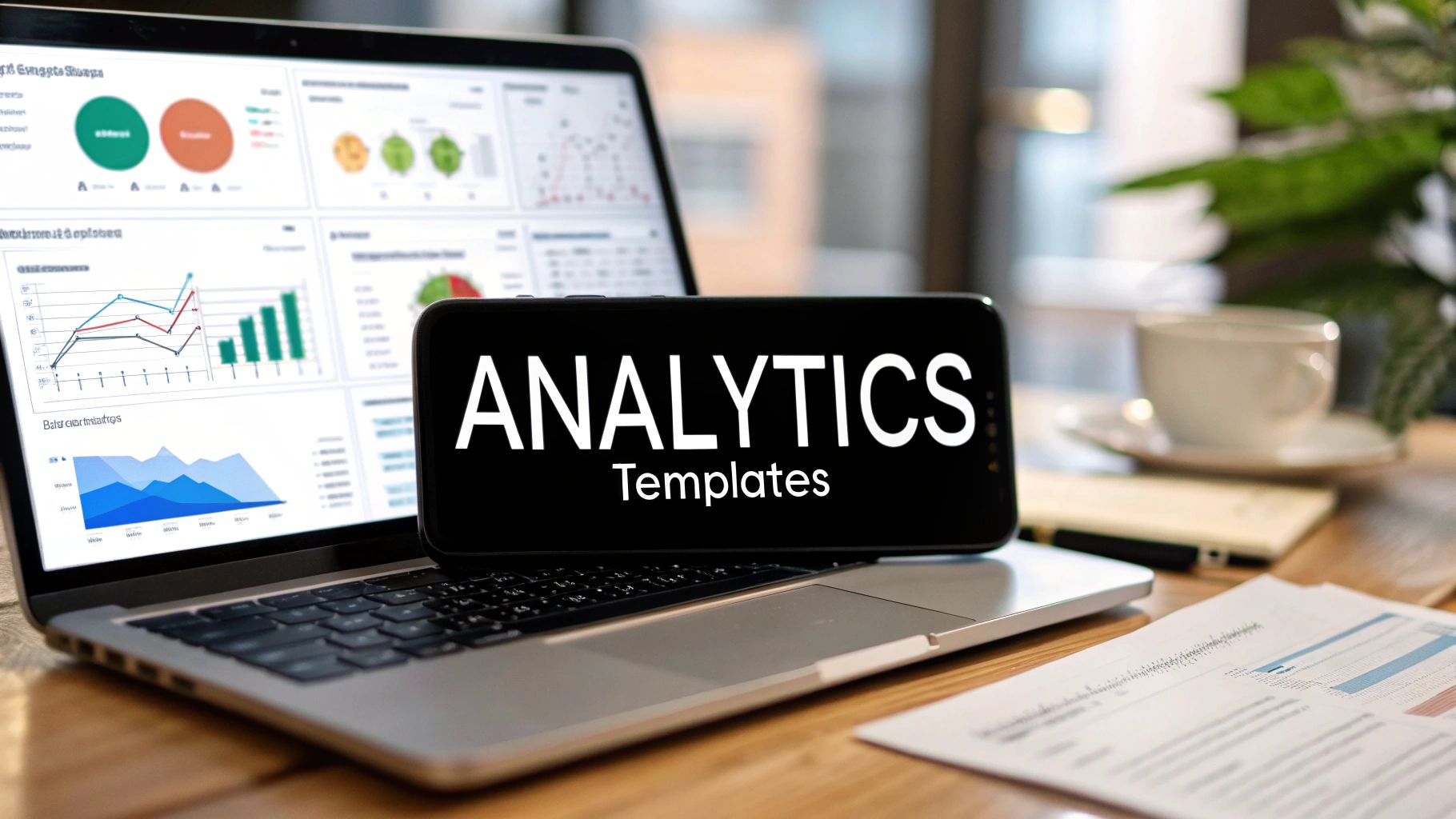
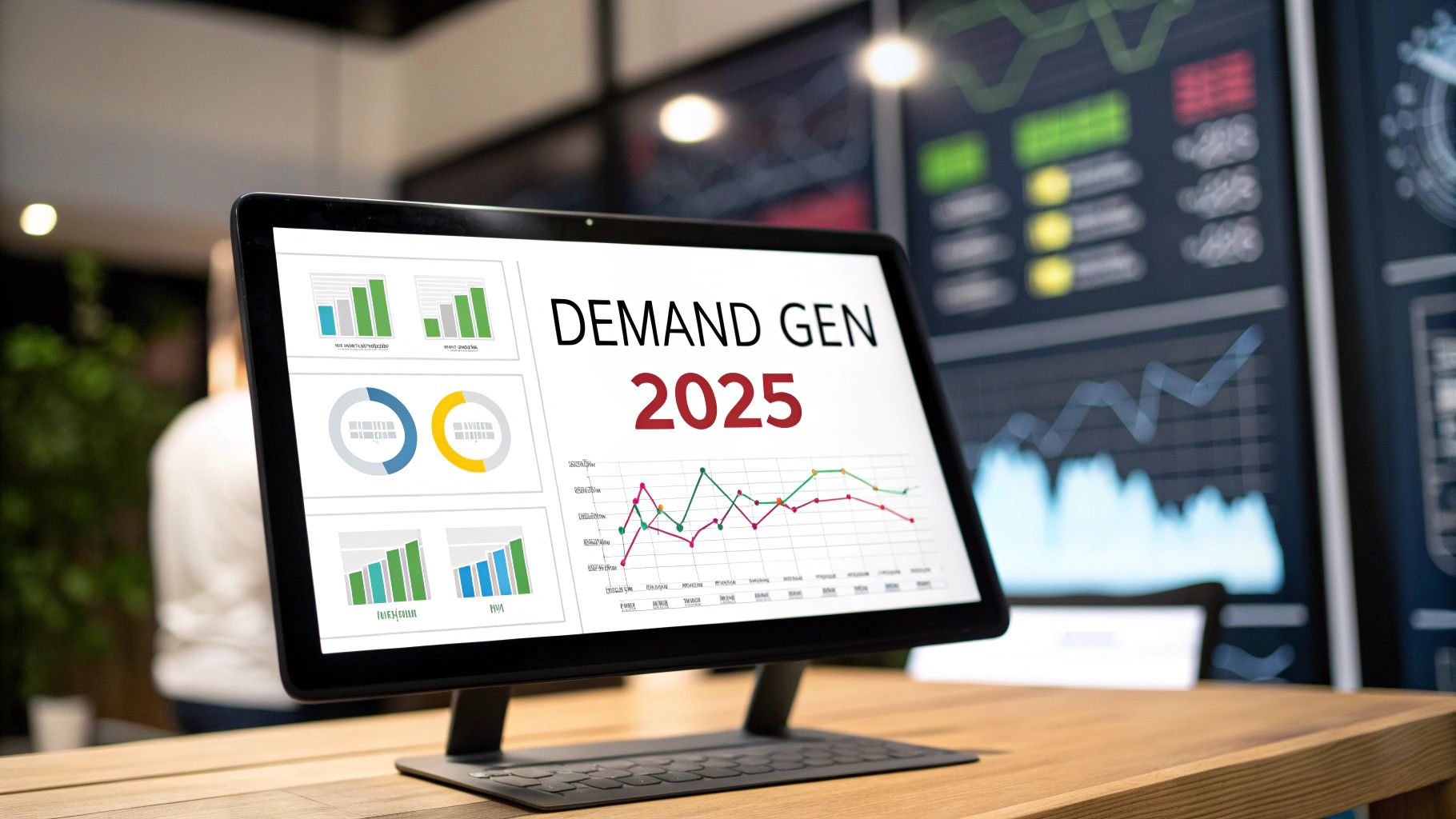
Comments